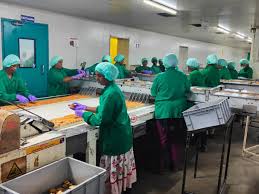
Beedi, the ‘poor man’s pleasure’, was categorized as a hazardous industry under the Beedi and Cigar Workers (Conditions of Employment) Act in 1966. With the strong beedi unions across the country demanding its implementation to ensure safe and secure working conditions in the factories, the politically well-connected industry began to shut down their factories with thousands of unionised workers losing their jobs. Simultaneously the industry relocated to new localities and began outsourcing beedi rolling to home based workers, as the law clearly stated that its regulatory requirements did not extend to private dwellings. In this transition industry also moved its task of rolling beedis from men who had become politicized and unionized over the years to women, especially from muslim and dalit communities, who had no or minimal public contact due to existing gender bias and social norms of purdah, untouchability and beyond the reach of trade unions.
This masterstroke allowed the beedi industry to expand production, make higher profits, along with transfering the establishment cost and the health cost to the workers and their families. The beedi industry, thereby successfully shifted the narrative from an exploitative hazardous industry requiring regulation to a benevolent industry that provides jobs to home bound women from the most vulnerable communities. This ‘single largest livelihood provider for the most vulnerable women’ title has also provided the beedi industry the much needed cover from regulatory policies on tobacco control over the last 6 decades.
In Jan 2023, the Income-tax department raided Shiv Beedi, owned by Jakir Hossain, the erstwhile minister of state in West Bengal for the Department of Labour, and recovered ₹ 16 crores in cash from multiple locations. In November 2023, the West Bengal University of Health Sciences (WBUHS) issued a provisional affiliation certificate to Jakir Hossain Medical College and Research Institute in his constituency of Jangipur in Murshidabad district with 150 new MBBS seats for the state. This is one recent example of the close linkage between beedi companies and political parties of all colours and their ability to pull the wool over our eyes.
Despite widespread public campaigns against tobacco, the beedi industry continues to thrive. No skill development programmes or microfinancing initiatives initiated by government or non-governmental agencies are able to wean beedi workers away from the industry permanently. These livelihood programmes have been either numerically insignificant or temporary. In most villages where beedi is rolled, women from almost every household rolls beedis. They are, in many cases, the sole earning member of the family. Entrepreneurial ventures proposed by government and other agencies require women beedi rollers to possess -(i) seed money for investment; (ii) market access; and (iii) ability to take risk – all three of which are barriers to women who mostly make less than Rs. 6,500 per month. In addition, these programmes train women in tailoring, home-based food processing, as beauty professionals and similar activities. But how many tailors or hairdressers or papad makers does one village need and can the women beedi rollers compete with organised production beyond their rural market? This model of transition to alternative livelihood has thus always proved non-viable at a large scale.
Then what should the alternative look like in a just transition? A just transition is not just about jobs for jobs, but it includes jobs for better jobs, jobs that are environmentally sustainable, jobs that leave no one behind. Alternative jobs for waged beedi workers needs to be in this holistic framework. The alternative employment policy for beedi workers needs to be linked directly to the industrial policy of government that provides various incentives to industry to invest. These incentives could be linked to a component of training and employing women beedi workers in the new industries relocating to rural areas.

Promoting employment of beedi workers can earn considerable social currency for these industries for (i) providing stable and decent employment to vulnerable women workers; (ii) protecting the workers and their families from health hazards due to tobacco exposure; (iii) freeing beedi workers from intergenerational bondage to beedi work.
Beedi rolling is wage work and wage work can only be sustainably substituted by other forms of wage work. Wage work, howsoever, tedious and dangerous it may be, guarantees a wage, howsoever low it may be, after the work is completed. In a country where the richest 1% own more than 40% of the country’s total wealth, while the bottom half of the population together share just 3% of wealth, a secured wage prevents families from being pushed into destitution.

Leave a Reply